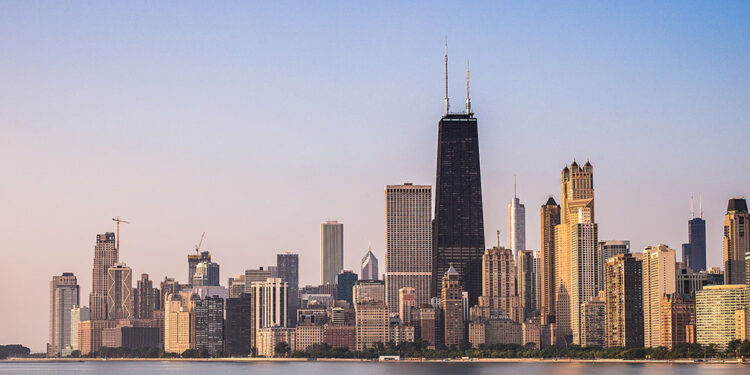The Esports Advocate has learned that white label tournament platform LeagueSpot was working in conjunction with sports technology-focused firm Phoenix Sports Partners (which has investments in the company) and local Chicago real estate firm Urban Resolve to turn the old Chicago Board Options Exchange building into a place for young people to engage in esports activity, pending approval from the city on a proposal submitted as part of the “LaSalle Street Reimagined” initiative in July.
But a new report from the Chicago Sun Times Tuesday reveals that the proposal has been rejected and that another esports project in the city appears to have been abandoned.
TEA has known about this project since January and filed a Freedom of Information Act request with the City of Chicago Department of Planning and Development, but the request was recently denied: “..the Department determined the requested records are exempt in compliance with FOIA. Section 7(1)(h) exempts from disclosure ‘[p]roposals and bids for any contract, grant, or agreement, including information which if it were disclosed would frustrate procurement or give an advantage to any person proposing to enter into a contractor agreement with the body, until an award or final selection is made. Information prepared by or for the body in preparation of a bid solicitation shall be exempt until an award or final selection is made.’ 5 ILCS 140 7(1)(h). Because there has not been a final selection, the proposal records are exempt from disclosure pursuant to Section 7(1)(h).”
LeagueSpot and Phoenix sports Partners were working as advisors and consultants on the project, particularly on the part of the proposal that would turn the trading floor (or the old trading pit) into a space that could host esports competitions and a small in-person audience. In addition to esports-related facilities, the project would convert the 300,000 square-foot (former) Chicago Board Options Exchange building at 400 S. LaSalle into student housing, a food court, a student mental health center, and a fitness center. The proposal had a price tag of around $104M USD.
Urban Resolve’s Managing Director Erin Lavin Cabonargi told the Sun Times that without a city subsidy the project isn’t viable, but she sees it working elsewhere: “This would be bringing people together, not as a for-profit venture, but more as a civic attribute,” she said.
Chicago Deputy Planning Commissioner Cindy Roubik said that the project was rejected because it was ineligible for subsidies: it fell “just outside the tax increment financing district for any La Salle improvements.” While the proposal was rejected, Roubik told the Sun Times that it was “interesting,” adding that “Esports and student housing are really good land uses for downtown.”
LeagueSpot did not respond to a request for comments.
Another project, which would have created a virtual reality-based esports venue, has been abandoned by real estate developer Scott Greenberg—he managed to get city approval for the space in 2020 when esports was a still a new and shiny thing. Greenberg’s vision of a $30M arena at 2500-48 S. Wabash Avenue has been abandoned.
He tells the Sun Times that the appetite to fund such a venture isn’t there anymore: “The conditions in the gaming industry are changing. Some of the clients I was courting are backing away,” he said.
Greenberg has switched gears and through his company Smash Virtual, is creating what he calls “Chicago’s first dedicated LED soundstage, which will allow “filmmakers to put actors or props in virtual surroundings,” according to the paper.
Editor’s note: The original story (and some social media posts) listed the “old Chicago Board of Trade building” as the site of the proposal, but the correct building is the “Chicago Board Options Exchange Building.” We have corrected both the story and sub headline. We apologize for the error.
